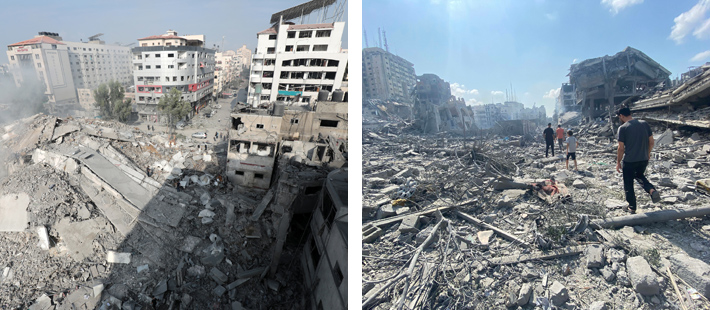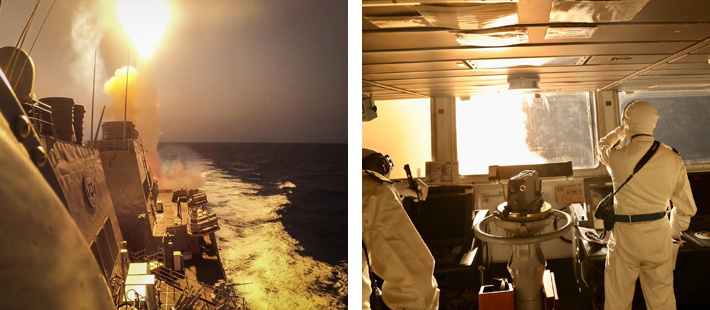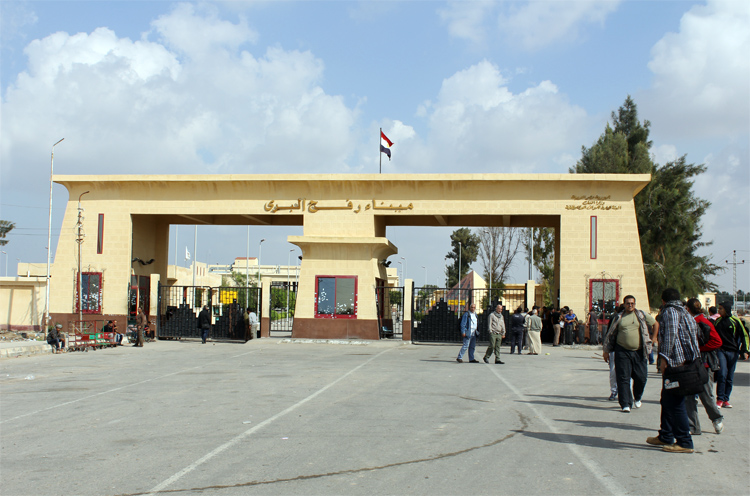INDIAN ARMED FORCES CHIEFS ON OUR RELENTLESS AND FOCUSED PUBLISHING EFFORTS

The insightful articles, inspiring narrations and analytical perspectives presented by the Editorial Team, establish an alluring connect with the reader. My compliments and best wishes to SP Guide Publications.

"Over the past 60 years, the growth of SP Guide Publications has mirrored the rising stature of Indian Navy. Its well-researched and informative magazines on Defence and Aerospace sector have served to shape an educated opinion of our military personnel, policy makers and the public alike. I wish SP's Publication team continued success, fair winds and following seas in all future endeavour!"

Since, its inception in 1964, SP Guide Publications has consistently demonstrated commitment to high-quality journalism in the aerospace and defence sectors, earning a well-deserved reputation as Asia's largest media house in this domain. I wish SP Guide Publications continued success in its pursuit of excellence.
- MoD initiates comprehensive review of Defence Acquisition Procedure 2020, pushes for defence reforms
- G7: The Swansong
- Kalinga Connect: South Asia to Polynesia
- Must Credit DRDO for Operation Sindoor, now what is next for defence R&D?
- The layered Air Defence systems that worked superbly, the key element of Operation Sindoor
- Operation Sindoor | Day 2 DGMOs Briefing
- Operation Sindoor: Resolute yet Restrained
Gaza: Negotiators' Nightmare
Chasing the elusive solution for peace under the shadow of conflict
 |
The Author is former Chief of Staff of a frontline Corps in the North East and a former helicopter pilot. He earlier headed the China & neighbourhood desk at the Defence Intelligence Agency. He retired in July 2020 and held the appointment of Addl DG Information Systems at Army HQ. |
Seventy-five years since the formation of Israel and some thirty years since 1993 Oslo Accord, it is quite clear that the two-state solution to the Israeli-Palestinian conflict is no longer viable. There is no political constituency in Israel to support meaningful Palestinian sovereignty in Gaza and the West Bank, including East Jerusalem. The refusal of many in the region to recognise the existence of Israel compounds an already complex situation. The world recognises the humongous death and destruction being inflicted in Gaza as a response to the October 7, 2023 Hamas attack but the failure of the UNSC to meaningfully intervene and conflicting interests of the many stakeholders including the US means there are no easy ways out.

Today, most of Gaza strip is a wasted, mangled, bombed-out urban landscape with over 28,000 dead and more than half its 2.3 million population in makeshift tent shelters or in UNRWA schools and facilities. Mediation is urgent. The US has taken the lead with shuttle diplomacy. Secretary of State Antony Blinken has been jetting across the region to negotiate with all stakeholders who have an influence. Foremost among them are Lebanon, Qatar, Egypt, Saudi Arabia, Turkey and Jordan.
Seventy-five years since the formation of Israel and some thirty years since 1993 Oslo Accord, it is quite clear that the two-state solution to the Israeli-Palestinian conflict is no longer viable
The most proximate ally of Hamas is the Hezbollah in Lebanon. The most powerful of Iran's 'Axis of Resistance', the Shia radical terror outfit has developed deep networks within the mainly Sunni Palestinian factions. Palestinians numbering between 1,70,000 to 2,00,000 are housed in 26 camps in Lebanon since the Black September events of 1970, when the Palestinians were evicted from Jordan following their attempts to assassinate King Hussein. They provide a fertile ground for recruitment for the terror outfits.
Unlike Qatar or Saudi Arabia or Turkey or Iran, Lebanon shares a 130 kms long border with Israel along the heavily fortified Blue Line in the heart of the theatre.In the Gaza war, the force majeure is not the state of Lebanon but rather the far more potent and powerful Hezbollah. That is a pointer to the complexities that confront the peace negotiators.Four months on, it appears that Hezbollah is keen to keep its actions symbolic and restrained, fully aware of the devastation a full-scale Israeli offensive can cause, learning from its experiences of 2006. To be fair, Hezbollah is far more organised, lethal and financed than 18 years ago. It is also wiser.

The Houthis of Yemen have been targeting commercial shipping in the Red Sea and the Gulf of Aden disrupting global energy and trade traffic, especially to Europe which is already in a tight corner since the Ukraine war. Since three American soldiers were killed in a drone attack, on a base in Jordan on January 28, 2024, the US has been conducting targeted air and drone strikes on Iran aligned militias in Syria, Iraq and Yemen. The world is terrified by the potential of this violence to escalate and spill into a wider regional conflict leading to an open war between the US backed Israel and Iran.
Today, most of Gaza strip is a wasted, mangled, bombed-out urban landscape with over 28,000 dead and more than half its 2.3 million population in makeshift tent shelters or in UNRWA schools and facilities
Qatar is walking a fine line when it comes to its foreign policy, playing the "Switzerland of the Middle East" and keeping doors open to all comers. In the past, Qatar has acted as an interlocutor between the international community and the Taliban in Afghanistan (who also have political offices in Doha), between the US and Iran, and even Russia and Ukraine. Qatari-led mediations succeeded when more than 100 captives, mostly women and children, were released during a weeklong cease-fire in November in exchange for the release of 240 Palestinians imprisoned by Israel. However, Qatar has been home to Hamas' political leadership since 2012, and some believe it was somehow complicit in Hamas' attacks.
The refusal of many in the region to recognise the existence of Israel compounds an already complex situation
Egypt brings a great deal to the table as it controls the Rafah crossing, the only official entry point into the Gaza Strip not controlled by Israel. The Egyptian military has had an enduring interest in the Gaza Strip since it initially occupied it for almost two decades after Israel's independence in 1948, and it has remained finely attuned to the area's security environment. Hamas and other Palestinian militant groups have used a network of tunnels from Gaza into Egypt to smuggle weapons into Gaza, and Palestinian fighters have passed through them to travel onward for military training in Lebanon and elsewhere. As Israel ground offensive pushes into Rafah, Egypt is back in the spotlight, threatening to suspend its half century old Camp David Accords, a cornerstone of regional stability.

NATO-member Turkey's role as a mediator – though strengthened by its close ties with Qatar and long-standing relationships with both Israel and Hamas – is increasingly vulnerable to public opinion. The Saudi-UAE axis watches from sidelines while making high decibel noise to satisfy the restive crowds at home. They need Israel's sophisticated security and surveillance platforms to police their own population and maintain their cordial relations with Washington to sustain their oil trade.
Iran is wary of being dragged into the Israel-Hamas war, but it may not be in full control if the militias it backs like the Hezbollah, the Houthis or the Kataib Hezbollah in Iraq escalate with attacks on US bases in the region as Hamas suffers heavy blows and the death toll in Gaza continues to mount. Senior leadership of the Islamic Revolutionary Guards who arm, train, and coordinate with these groups are being systematically eliminated in drone strikes by the US and Israel. The US, world's strongest military is proceeding with caution. As the American debacles in Vietnam and Afghanistan proved, that's no guarantee of victory over determined and resourceful foes.
The more difficult and enduring question is the future of Palestine. Almost everyone in public espouses a 'Two-State Solution', outlined in the 1993 Oslo Accord. But behind closed doors, there are many nuances to the oft-parroted solution. The Palestinian Authority that replaced the PLO to administer the two-parcels (West Bank-Gaza) self-ruled Palestine has lost credibility. Its Fatah faction that rules the West Bank is variously accused of corruption, nepotism, a laid-back aging leadership and above all, suspected by many to be in cahoots with Israelis. The alternative, Hamas, that had seized Gaza in 2007, may have ruled itself out as an option. Palestine as a state never existed in the past and may never have a future. The Middle East is destined to remain in ferment.





